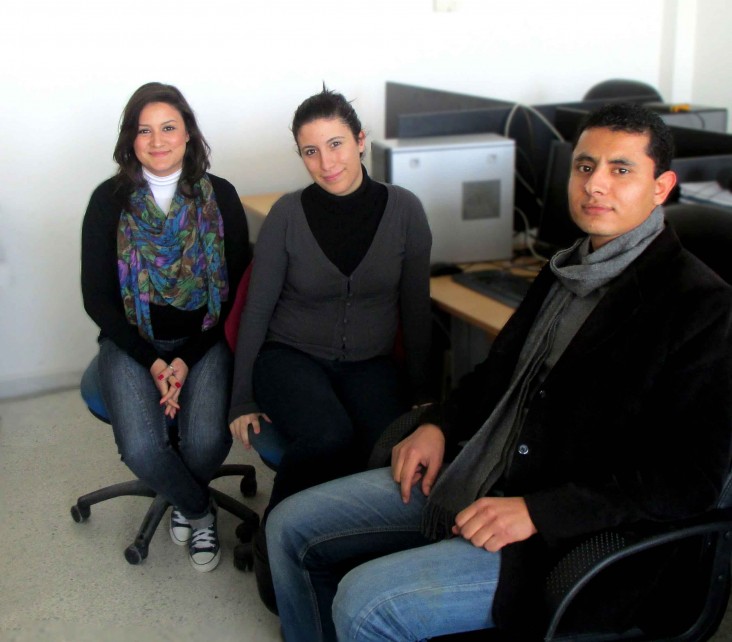
Houwayda*, 26, who graduated last spring from the National School of Engineering in Sousse, Tunisia, recently received a special opportunity from a prospective employer, Proxym-IT, to polish her interpersonal skills in a USAID-supported course. The Sousse-based firm, which specializes in developing web and mobile applications, is committed to extending full-time work offers to her and other new recruits upon successful completion of the classes.
Trained as a software engineer, Houwayda wants to do far more than develop software.
“I am no longer afraid of picking up the phone and calling a prospective customer, or making an effective presentation at a public event,” said Houwayda after finishing the training. “My new managers now will not hesitate to assign me to any sales or marketing duties in addition to developing software. Being in the heart of interactive group activities was definitely a great way to overcome my communication shortcomings.”
For Houwayda, completing the training signalled the end of a long job search and the start of a full-time job at Proxym-IT.
The course was among numerous others organized in Tunisia by USAID’s Information and Communication Technologies (ICT) Competitiveness Project. Through this project, USAID is helping to address crucial challenges confronting the country, including unemployment, by creating jobs in the ICT sector.
The classes are demand-driven and designed specifically to fill skill gaps identified by companies like Proxym-IT. These firms then shortlist high potential recruits whose degree of professional preparation falls just a notch below their needs, and invite them to enroll in the course. The companies fund 20 percent of the training cost, with the remainder funded by USAID.
The classes in Sousse were designed to provide tools that Proxym-IT deemed paramount for its full-time staff: marketing and customer service, effective oral and written communication, initiative and teamwork. Recruits like Houwayda receive formal job offers after successfully completing the two- to four-week course and demonstrating measurable improvement.
Proxym-IT brought on board another recruit, Ismail*, 24, an engineer from the southwestern city of Gafsa. He said he was particularly grateful for a chance to pick up skills at the training, including organization and team work.
“In the past, I’ve had some difficulty managing relationships with my supervisors and colleagues,” Ismail said. “But now, I’m confident that I can deliver proper reporting, communicate with teammates in a more collaborative manner, and use smarter tactics for organizing my time and reducing stress.”
Workforce training courses are a response to the challenging employment market over the past two years in post-revolution Tunisia. As the economy struggles to adjust, Tunisia’s college-educated jobseekers face very different stumbling blocks from those encountered a decade ago.
While the country is home to hundreds of IT companies and thousands of educated jobseekers, mechanisms to link them are still emerging and weakened by the country’s state of flux. Tunisia’s university graduates experience a higher unemployment rate than jobseekers with a primary or high school education. This trend, not unique to Tunisia or the Middle East, is in part driven by growing university enrollments as colleges struggle to better target their curricula to labor-market needs.
Re-forging the links between employers and jobseekers in the ICT sector not only allows the trainees to launch fulfilling and rewarding careers, but also enables Tunisian firms to create and fill new positions.
Wassel Berrayana, CEO of ProxymIT, credited the classes with expanding the company’s ranks. “Despite the difficult economic conditions, Proxym-IT has hired 10 engineers following the training,” he said. “We look forward to getting our future hires efficiently trained through this program.”
Echoing this sentiment, Walid Khodja, the CEO of SmartHost, another company that benefitted from the trainings, said that USAID’s assistance “helped us reach our common goal: to recruit qualified people.”
*Last name withheld to protect privacy.







Comment
Make a general inquiry or suggest an improvement.